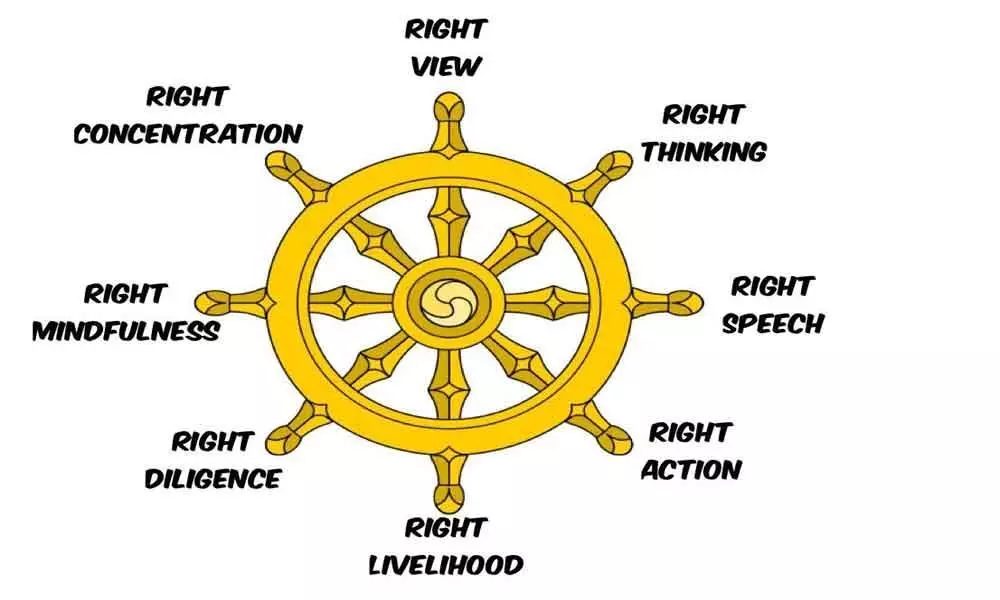Dharma is a Sanskrit term with layered meanings: law, duty, truth, right action, or the natural order of existence. In Indian philosophy, Dharma is both cosmic and personal — the universal principles that sustain harmony, and the individual path of living in alignment with one’s true nature. Acting in accordance with Dharma purifies Karma and leads toward liberation (Mokṣa or Nirvāṇa).
The idea of Dharma is central to Hinduism, Buddhism, and Jainism:
- Hinduism: Dharma means righteous living in harmony with cosmic law, one of the four aims of life (puruṣārthas). The Bhagavad Gītā teaches that each being has a unique svadharma (personal duty).
- Buddhism: Dharma (Dhamma in Pali) refers to the teachings of the Buddha and the universal truth they reveal. Living according to Dharma ends suffering.
- Jainism: Dharma is both moral law and the medium that allows movement, understood in a highly metaphysical sense.
The term comes from the root dhṛ (“to uphold, to support”), pointing to that which sustains the order of the world and of the soul.
In my use, Dharma is the compass that aligns action with truth. It is not a rigid set of rules but the living flow of integrity, presence, and service. Dharma means embodying one’s unique role in the web of life while staying aligned with universal principles. When we act from Dharma, our life resonates with coherence and meaning.




.svg)
.svg)

.svg)

